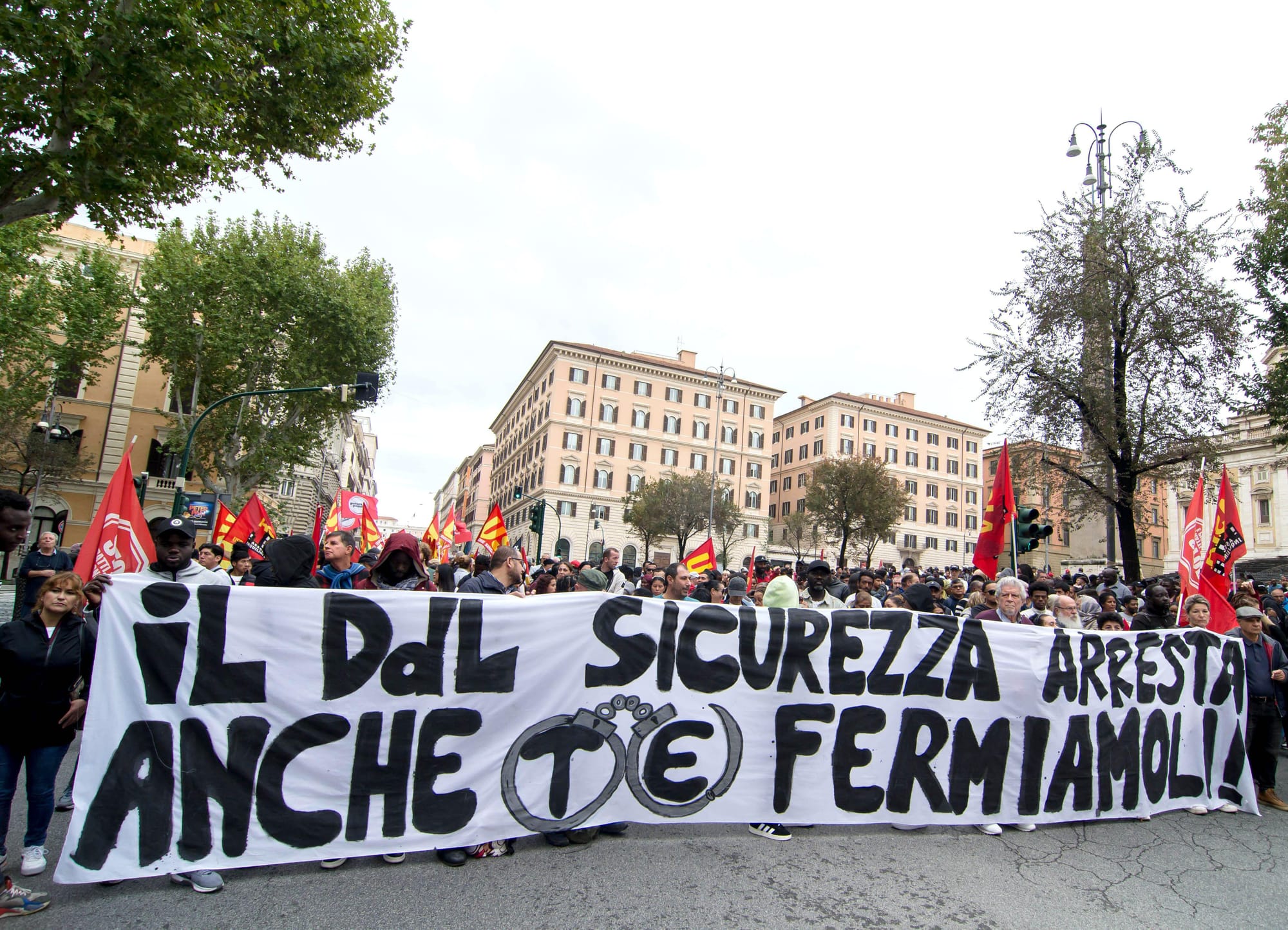Italy's far right bypasses parliament on security bill
Tommaso Gori

Currents+ is included as part of all print and/or digital subscriptions to New Internationalist magazine. That's a £36 annual value!
Mass demonstrations took place in major cities in Italy last week after prime minister Giorgia Meloni and her far-right coalition used emergency powers to reintroduce a controversial security bill that seeks to toughen penalties for protests.
On April 5, the grassroots network Rete Nazionale No DDL Sicurezza led a coordinated wave of demonstrations in cities including Bologna, Naples, Rome, and Milan, denouncing what they describe as a ‘bureaucratic coup’ and a dangerous authoritarian shift.
‘It is the most radical and systematic attack on rights, freedoms, and civil coexistence that Republican Italy has ever experienced,’ says a representative of the network.
Of the 38 measures in the DDL Sicurezza, at least 14 introduce new offences that disproportionately target migrants and climate activists — from up to eight years in prison for protesting in detention centres, to being banned from public spaces without trial, to jail time for peaceful roadblocks.
First introduced last September, the bill faced political deadlock amid growing national mobilizations and parliamentary opposition. But Meloni’s government approved the bill with institutional aggression in what appears to be an act of retaliation against the government’s critics, who argue that the legislation could lead to the criminalization of peaceful dissent and the erosion of fundamental freedoms, such as expression and assembly. The bill also raises fresh concerns about the proliferation of Hungary's Viktor Orbán-style illiberalism, the erosion of parliamentary procedures, and the expansion of police powers under the guise of public security.
The implications of the bill extend beyond Italy's borders: as European democracies grapple with rising populism and anti-migrant sentiment, after Hungary, Italy’s fast-tracked bill could set a troubling precedent across the EU.
‘This is a deaf democracy – deaf to the voices of protest, of civil society, and of human rights organizations,’ says Ilaria Masinara, Head of Campaign at Amnesty International Italia.
In response to criticism, Prime Minister Giorgia Meloni said the measures were ‘necessary and no longer postponable’.
Luca Blasi of the No DDL Sicurezza network, which unites over 100 of Italy’s leading human rights NGOs, major trade unions, student movements and left-wing political parties, says the group is planning a major national assembly on 1 May and a mass mobilization on 31 May.
Under Italian law, emergency decrees must be approved by Parliament within 60 days to remain in effect. The next vote is set for May, when Blasi plans to challenge the decree’s constitutionality, arguing it bypasses parliamentary debate without real urgency.
Barbara Tibaldi, a representative of the Italian metal workers trade union Fiom Cgil said: ‘This decree must be opposed by applying democracy. The less we’re heard, the more we’ll strike and blockade.’
👓 Read more about the West's embrace of Meloni's extremism, and how Italians may learn from Eastern European leftist movements in countering illiberalism
📱 Follow Rete No DDL Sicurezza for updates on the ongoing mobilizations to resist the bill
✅ Sign the Amnesty International petition to protect the right of assembly in Italy
⚖️ To better understand the implications of the security bill, read these responses from Organization for Security and Co-operation in Europe and Human Rights Watch
Read the latest issue of New Internationalist
Like what you've read? Support us with a tip
Looking for more? Listen to our podcast The World Unspun
Shop ethical goods at our very own Ethical Shop

